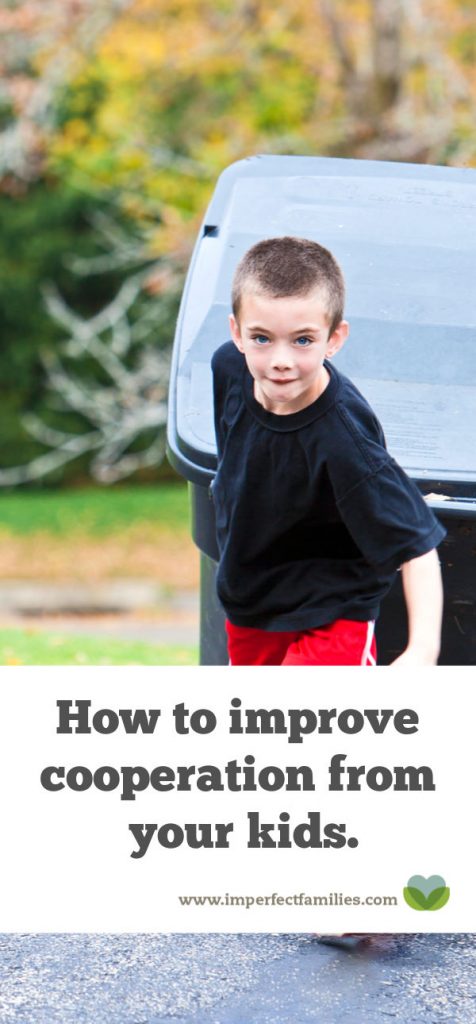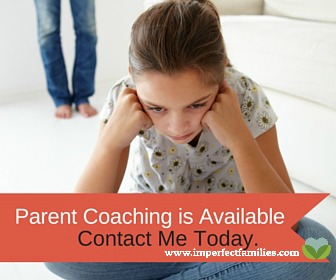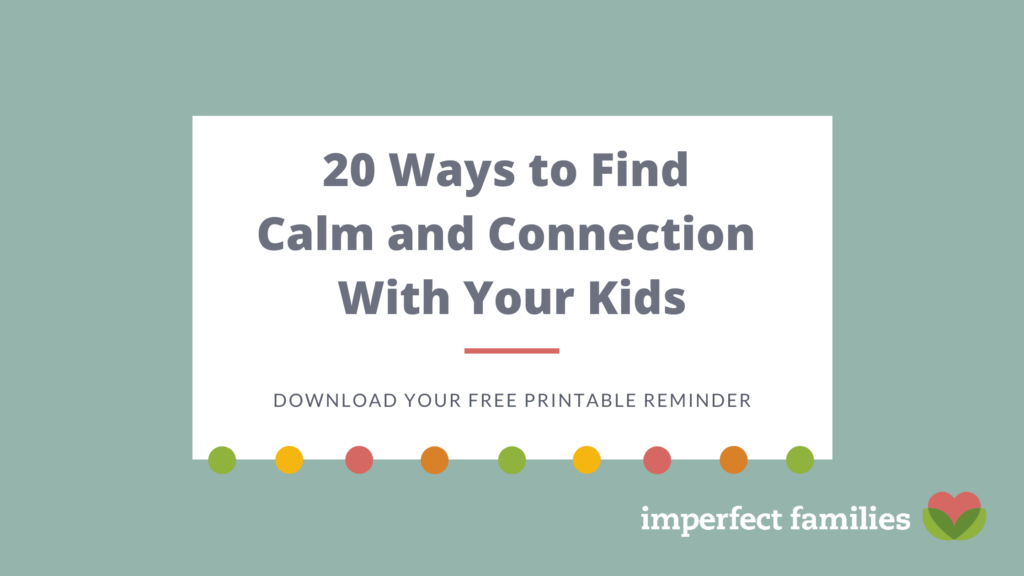Tired of arguing, begging and bribing your kids to help out around the house..or do anything you ask? These 9 tips will help you improve the cooperation from your kids.

You’re standing at the kitchen island as your kids stampede away into the other room.
They grab video game controllers and wrestle for their places on the couch.
In front of you are plates of half-eaten sandwiches, empty cups, and potato chip crumbs. “Hey guys, come back here! Clean up your lunch!”
As if suddenly unable to hear, your kids ignore your pleas. Sighing, you resign yourself to another round of kitchen cleanup.
When will the kids start helping out around the house? When will they cooperate when you ask?
Creating an atmosphere of cooperation in your home may mean making some changes to how you and your family communicate and rethinking your go-to responses. Check the list below and pick one or two new strategies to try. Then, click the link to read more!
How to improve cooperation from your kids
(To make it easy to remember, they all start with the letter “C.” If we’re going to work on changing our habits, we might as well try to make it fun, right?)
- Calm: No one’s listening when people are yelling. If you want to improve cooperation, wait until you and your child are calm. And, if you realize you’re yelling…congratulations! Now, you can do what you need to do to calm yourself (even if your child is still upset). Learn how the brain works when you’re angry.
- Connect: Kids want to be known as unique individuals. This means they need one-on-one time with you. This doesn’t have to be a whole-day event, look for small ways to connect with your child throughout the day. Here are 50 ways to connect with your child
- Creativity: When we’re calm we can see our options and remember what worked for our child in the past. The language of kids is PLAY, which means being silly, singing songs, and turning things into a game may improve cooperation. Learn a visualization to help you be creative.
- Curiosity: Rather than focusing on the behavior you can see, take a few steps back. Be curious about why the behavior is occurring. What is going on in the environment? What stressors is your child feeling? What do they need to be successful in this situation? Learn more about finding the “why.”
- Concentrate on emotions: Often, our requests are extremely logical, rational and adult-centered. Your child doesn’t share the same sense of urgency. Rather than reiterating your point, use empathy to see things from your child’s perspective. Learn how to use empathy to avoid power struggles.
- Communication: Respectful communication goes both ways. As the adult, you can model the behavior you want to see from your kids. Practice empathy, resisting the urge to solve your child’s problem, and instead focusing on being an invested and interested listener. Learn how to respond when your child is disrespectful.
- Change the environment: Sometimes, simple changes are the most effective. Make sure your child is able to follow through with your request. Giving kid-friendly kitchen equipment, child-height hooks, and specific places to put things may increase cooperation. Here are 25 more things that impact your child’s behavior.
- Coach: Create a team mindset in your home. Rather than singling out the “squeaky wheel” focus on how a family works best together. Find ways for each person to contribute to the desired end result. Brainstorm solutions to challenging problems together. Learn how to have family problem-solving conversations.
- Celebrate: Notice when your child does something right! No one wants to be bossed around or directed all of the time. Make sure your child hears you talk about ways they are making progress, showing success, or how their follow-through positively impacted the family. Here are 50 ways to say “good job” (without saying “good job”)
Cooperation takes time
Changing the patterns of communication and interaction in your home will take practice and time. You’re probably not going to see an immediate change.
However, if you are intentional about creating respectful interactions and encouraging an atmosphere of cooperation, over time you will see the improvement you’re looking for!
If you’re still stuck and nothing seems to be changing in your home, schedule an Online Parent Coaching session. We can talk through what you’ve tried so far and find solutions that will work.




Comments have been turned off to retain the privacy of all families. If you have a question or comment on the topic, you're always welcome to contact me.